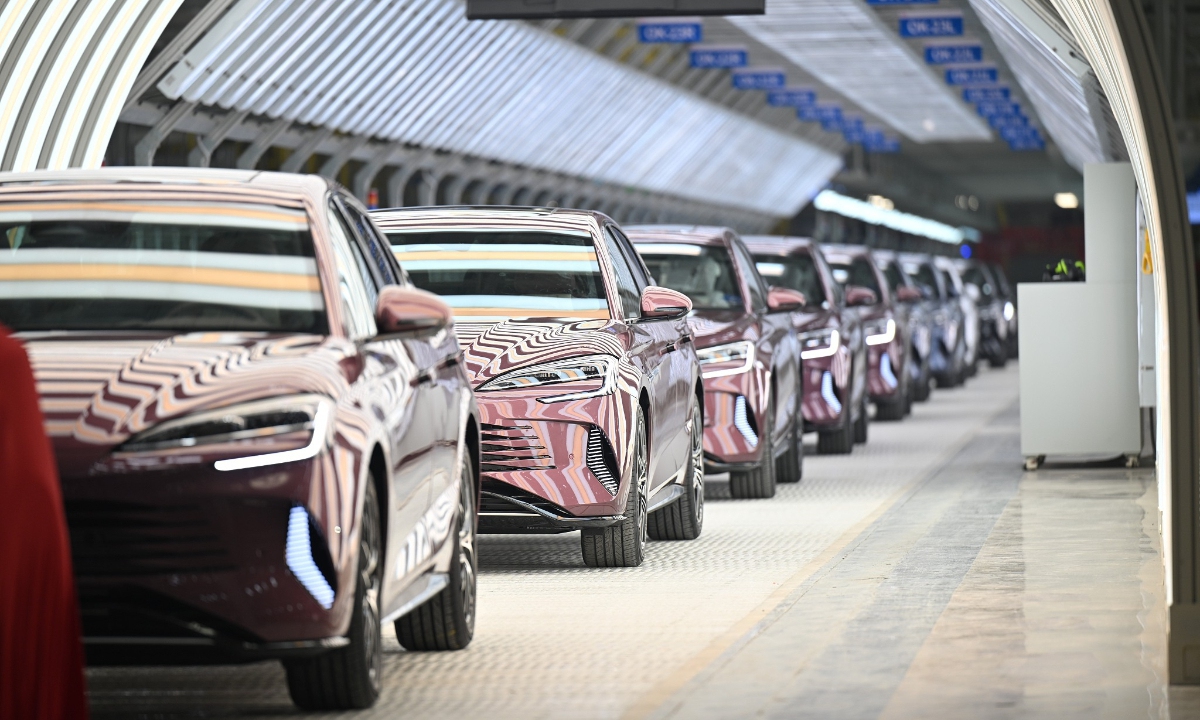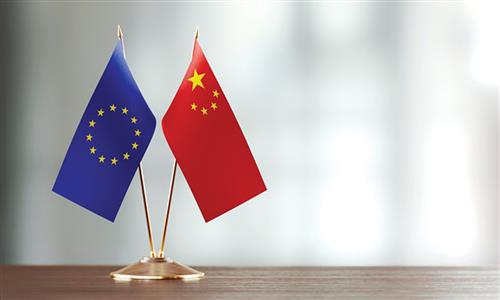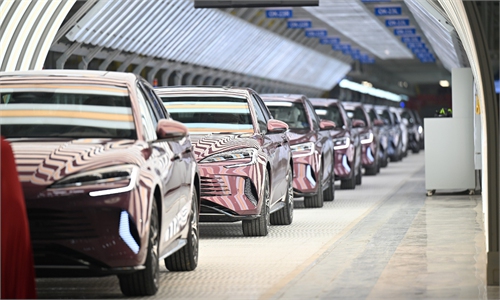Opposition voices in Germany become vocal as crucial vote on EU EV tariffs approaches

EV Photo:VCG
As EU countries are expected to vote on whether to impose additional tariffs on Chinese electric vehicles (EVs) on Friday, dissenting voices have grown louder.Germany is expected to vote against the tariffs on Chinese EVs in Friday’s vote, Reuters reported on Thursday, citing people with knowledge of the matter. Reuters also reported that a German government spokesperson declined to comment.
Germany abstained in a non-binding vote in July on the European Commission's (EC) proposal to impose tariffs. Since then, German carmakers, which made a third of their sales last year in China, have pressured the government to oppose these tariffs.
IG Metall, the powerful German labor union, along with employee representatives from the nation's major carmakers, said in a statement on Thursday that Germany should vote against the introduction of EU tariffs on Chinese EVs.
"We say unequivocally: tariffs are the wrong approach because they will not improve the competitiveness of the European automotive industry," they said in a joint statement.
German carmaker Volkswagen on Wednesday urged Germany to vote against the EU tariffs, arguing that they would not improve the competitiveness of the auto industry.
Another German carmaker BMW also urged the German government to tread cautiously regarding proposed tariffs on Chinese EVs in a statement released on Wednesday.
In addition to Germany, Spain has called for the EU to seek a compromise and negotiated outcome with China.
Instead of imposing tariffs, the EU should "keep negotiations open ... beyond the binding vote" to reach a deal on prices and the relocation of battery production to the bloc, Spain’s Economy Minister Carlos Cuerpo wrote in a letter to European Commission Vice President Valdis Dombrovskis, as reported by Reuters.
Spanish Prime Minister Pedro Sanchez said last month during a visit to China that the EU should reconsider its position on tariffs, and urged Brussels and Beijing to avoid a trade war.
Hungary has also expressed strong opposition, with Foreign Minister Peter Szijjarto stating on Facebook on Thursday that Budapest would vote against the "harmful and dangerous" plan.
China has engaged in extensive talks with the EC and EU member states regarding the EV tariffs. In September, Chinese Commerce Minister Wang Wentao visited Italy, Germany, Belgium and the EU headquarters, where he held in-depth and constructive talks with the heads of relevant departments, especially with European Commission Executive Vice President and Trade Commissioner Valdis Dombrovskis on the EU's anti-subsidy case against China's EVs. The two sides reached a preliminary consensus on the direction of negotiations for a proper resolution of the matter.
The European Commission announced in July that it will impose provisional countervailing duties on imports of battery electric vehicles from China, ranging from 17.4 percent to 37.6 percent.
The EU duties would become definitive for five years if approved by representatives of the bloc's 27 member states in Friday's vote. Experts believe EU’s increasingly protectionist moves will negatively impact Europe's green transition and consumer interests, definitely triggering countermeasures from the Chinese side, and an escalation in trade frictions will lead only to lose-lose results for both sides.



